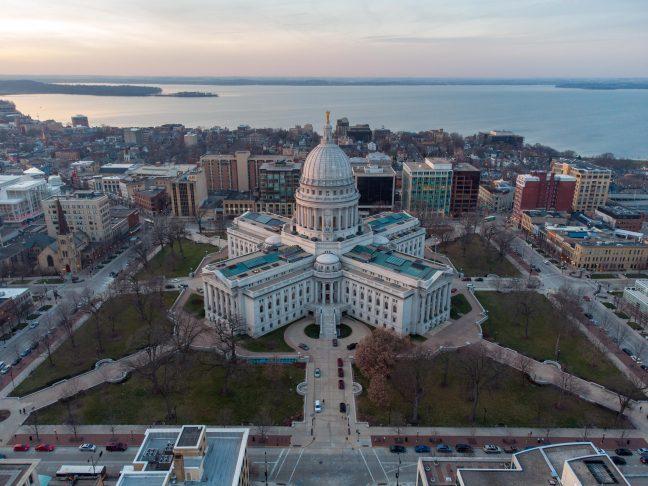The Wisconsin Assembly passed a bill Tuesday that would obligate employers to treat previous COVID-19 infections as an alternative to vaccines in addition to banning vaccine passports.
Several Wisconsin health groups have opposed the first bill, which would mandate that employers treat documentation of a previous infection as equivalent to the status of full vaccination. Health groups against the bill contend the vaccine remains the most effective way to prevent hospitalization and death, also noting there is not a consensus on how long natural immunity lasts.
Republican supporters endorse the bill with the assertion that a previous COVID-19 infection provides comparable protection to full vaccination. The bill is likely to be vetoed by Gov. Tony Evers.
University of Wisconsin Medicine and Public Health associate professor Ajay Sethi said recent CDC studies indicate that 36% of people who get COVID-19 don’t develop protective antibodies if they are asymptomatic or have very mild symptoms. But the Republican’s bill does not accommodate the scientific nuances for COVID-19 antibodies, Sethi said.
“The bill is not really helpful for the kind of crisis we have in the state right now,” Sethi said.
Given the emergence of the highly transmissible omicron variant, researchers say it is too soon to tell how much a recent infection of the now-dominant strain protects against re-infection. Some experts stipulate it is likely comparable to other variants — meaning people previously infected with the omicron variant are less likely to be re-infected for a few months.
Rep. Shae Shortwell, R-Two Rivers, said he supported the bill because he read studies showing that have shown natural immunity provided as much protection against COVID-19 as vaccines, which he said was the reason the assembly presented the bill. Shortwell said he is unsure if Gov. Tony Evers will sign the bill.
“The purpose of a vaccination is to stimulate a natural immune response,” Shortwell said.
But recent data has found that previous infection of another variant, such as delta, have little to no protection against omicron — with one study based out of London finding natural immunity against omicron from other variants could be as low as 19%.
Another key difference between natural immunity and the vaccine: immunity by vaccination provides better protection against serious infection, Sethi said.
“The latest from Dane County is just astronomical: people who have been vaccinated have 58 times more protection from hospitalization and severe disease [than people who have not been vaccinated],” Sethi said.
Sethi said the number of people in Wisconsin who are vaccinated has been increasing, but he is concerned this bill could potentially confuse people and discourage them from getting the vaccine.
The other piece of legislation would prohibit government agencies from requiring vaccination to receive services, which Republicans say would serve as a safeguard if President Joe Biden decided to implement vaccine passports, according to the Wisconsin State Journal.


